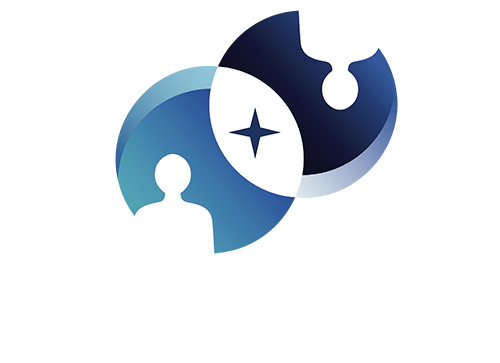Date :
State of progress:
In progress
Objectives:
Better understand the effects of microgravity on the human body
Test artificial gravity and exercise as countermeasures
Partners:
ESA, CNES, MEDES
MEDES is currently carrying out a microgravity simulation study using the bed rest model at its Space Clinic. Commissioned by the French (CNES) and European (ESA) space agencies , the study, named BRACE (Bed Rest with Artificial gravity and Cycling Exercise), includes 12 healthy male volunteers. The study lasted 88 days (including 60 days in bed).
The main objective of this study is to investigate whether artificial gravity combined with a cycling exercise helps to prevent and / or reduce the physiological effects induced by 60 days of anti-orthostatic bedrest.
2 countermeasures are being tested:
- A bicycle exercise protocol combined with a centrifugation protocol performed on the human short-arm centrifuge. The cycle ergometer exercise protocol is similar to that used on the International Space Station (ISS).
- A bike exercise protocol performed alone, following a protocol identical to that performed on the centrifuge.
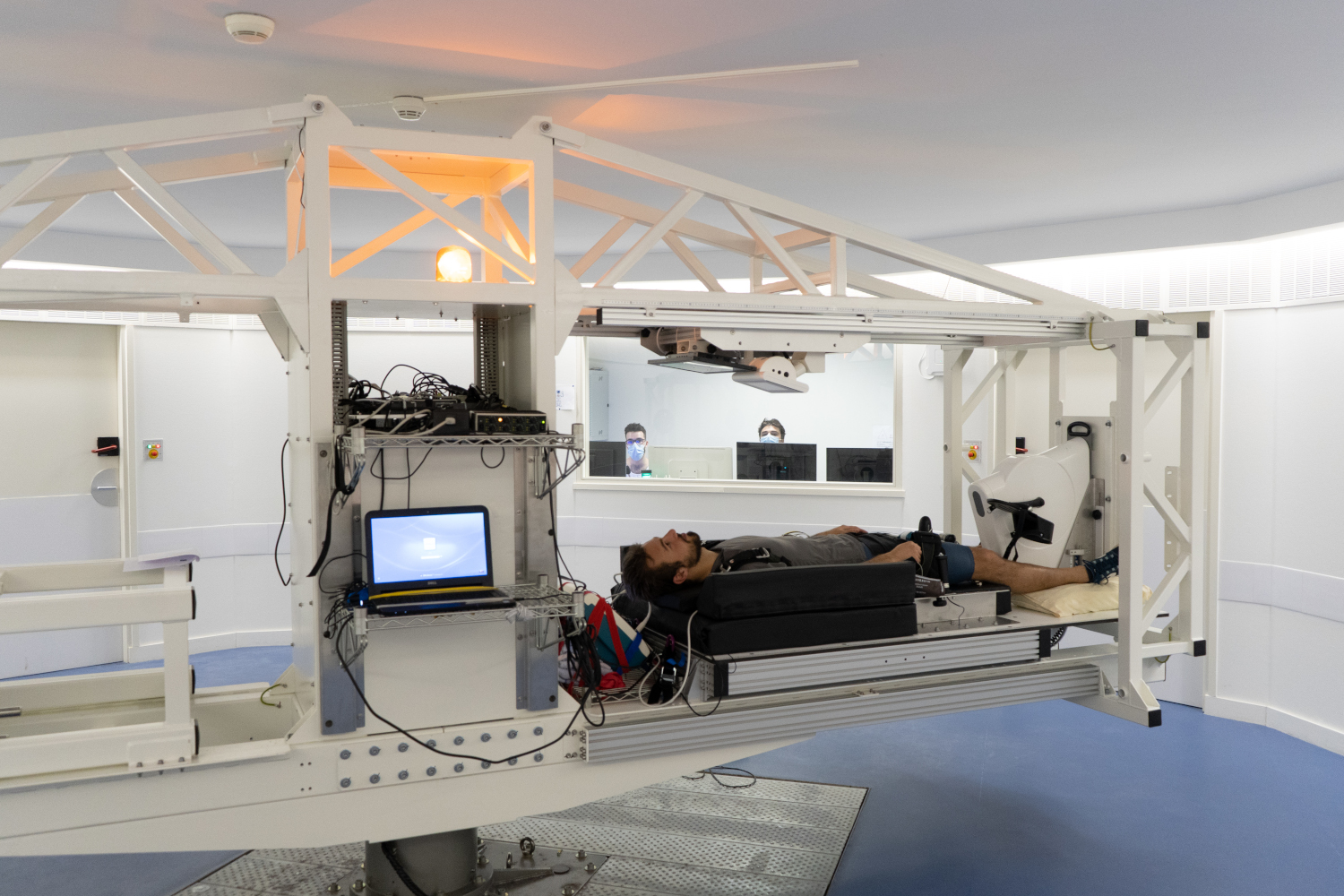
Medical and scientific tests and examinations
14 european scientific teams will assess the changes in the cardiovascular, metabolic, musculoskeletal, neuro-sensorial, haematological, and immunological systems. They have been selected by the ESA evaluation committees.
The various tests will provide a better understanding of the effects of prolonged bed rest on the various physiological systems, their interrelationships, and the effects of the two countermeasures. In addition to the measurements proposed by the scientists, a battery of standard measurements exploring the various physiological systems is also being carried out. These measures have been used for over ten years in all bedrest studies carried out in Europe. They enable us to evaluate the different countermeasures tested in the same way, and to compare their effectiveness with each other.
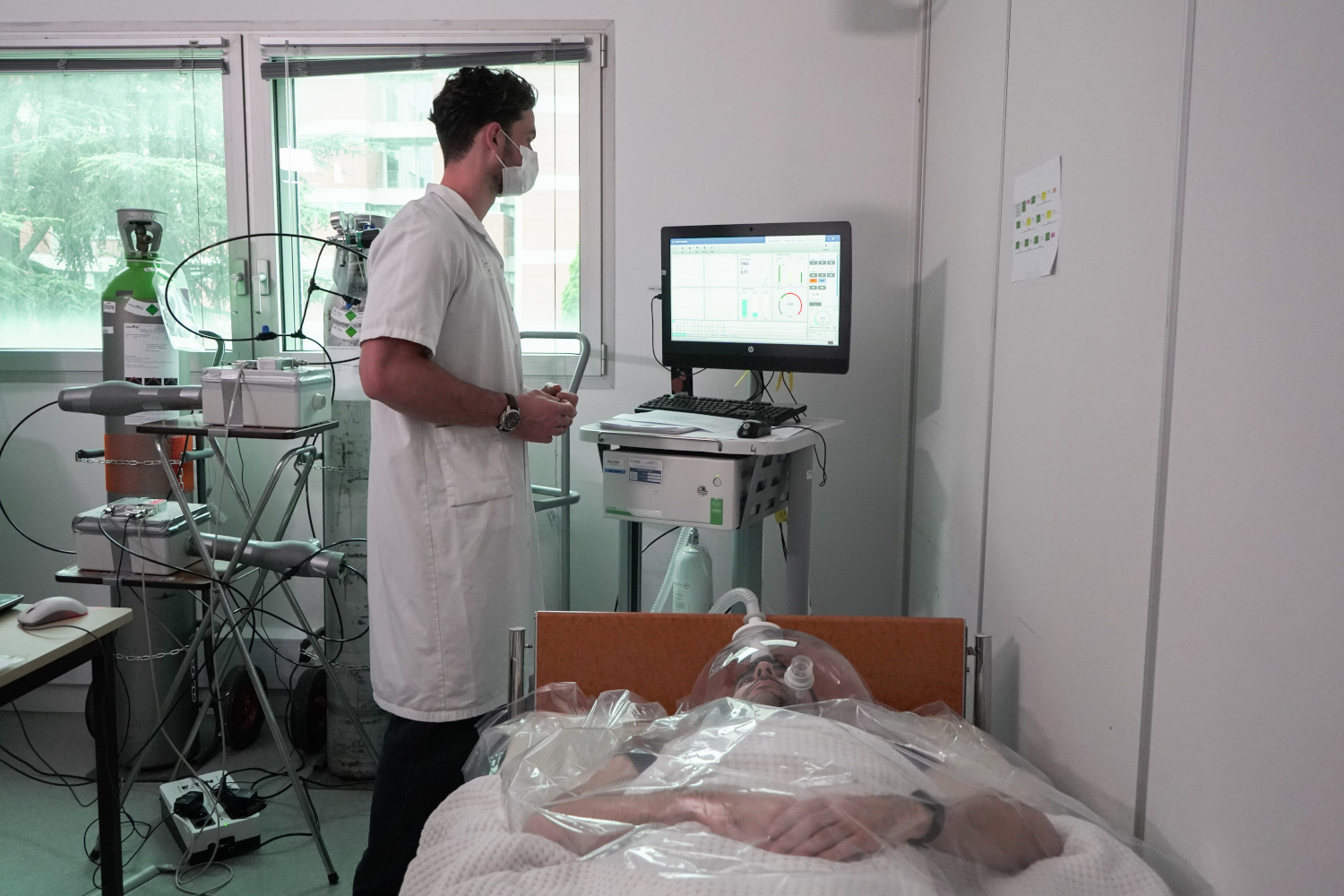
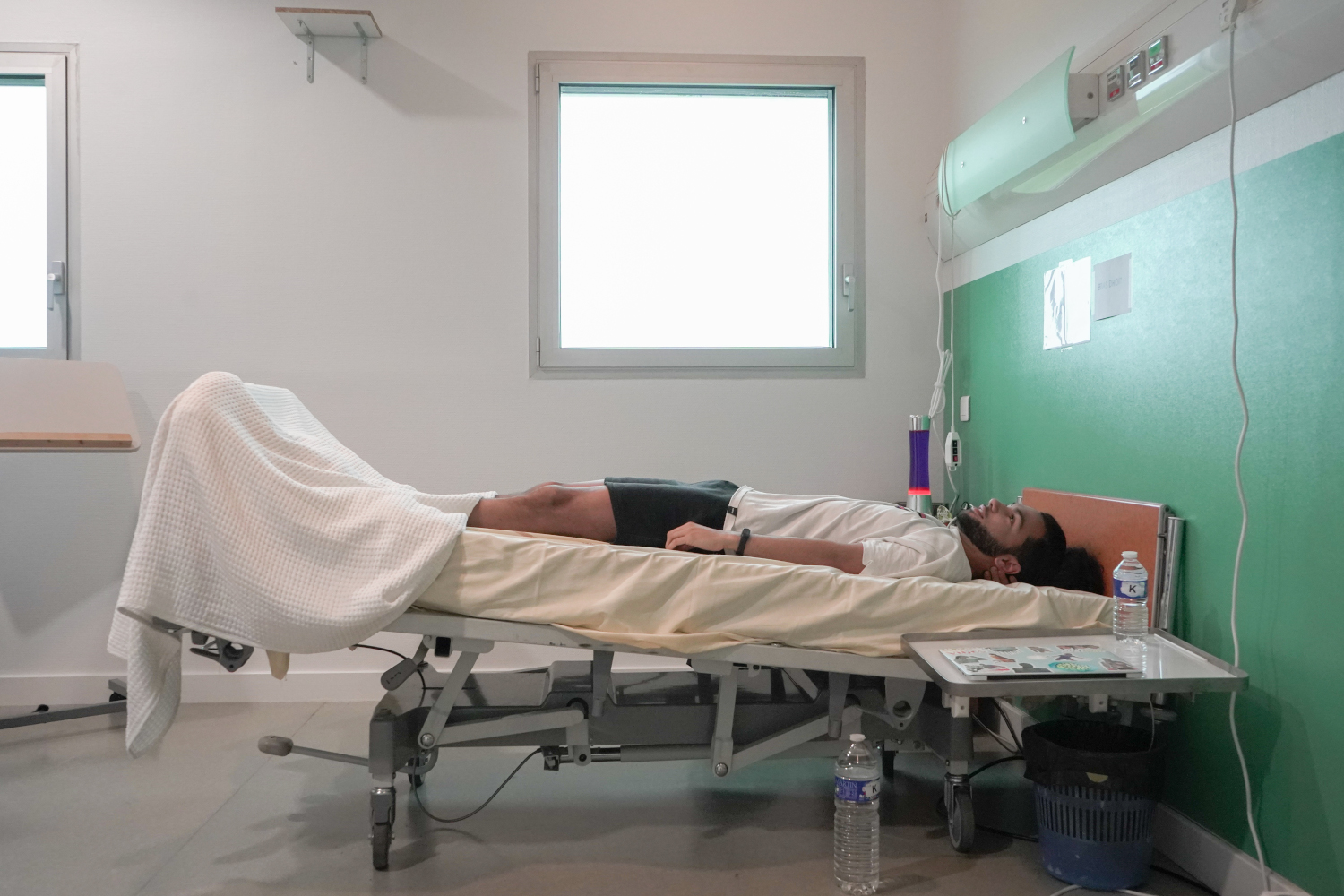
Study volunteers
The main selection and inclusion criteria were as follows:
- Healthy male volunteer
- Aged 20 to 45 years
- No overweight nor excessive thinness with BMI (weight kg/ height m2 ) between 20 and 27 kg/m2
- Height between 158 and 190 cm
- Certified as healthy by a comprehensive clinical assessment
- Good mental health (tests and psychological interview)
- Fitness level assessment
- No medical treatment
- Non active smokers
- No alcohol or drug dependence
The selection will be carried out in several phases:
- 2 phone interviews: One preliminary selection done over the phone will be based on application email and second a medical questionnaire on the personal and family medical history.
- 2 selection sessions carried out at the MEDES Space Clinic: the first one comprising of clinical and paramedical examinations, and the second one focused on psychological aspects, with centrifuge testing.
At the end of the selection process, 12 candidates were selected.
12 volunteers were be allocated to one of the three compared groups:
- Control group : no countermeasure protocol
- Exercises group: bike countermeasures
- Artificial Gravity combined with cycle ergometers group
The study process
Each volunteer is hospitalized for 88 days, including 60 days in bed.
The hospitalization period comprises:
- 14 days for ambulatory control period
- 60 days of head-down bedrest (-6°) period with or without countermeasure,
- 14 days for assessments and recovery after the head-down period
Furthermore, subjects will have to come back to MEDES 30, 360 and 720 days after the period of hospitalization for three follow-up visits.
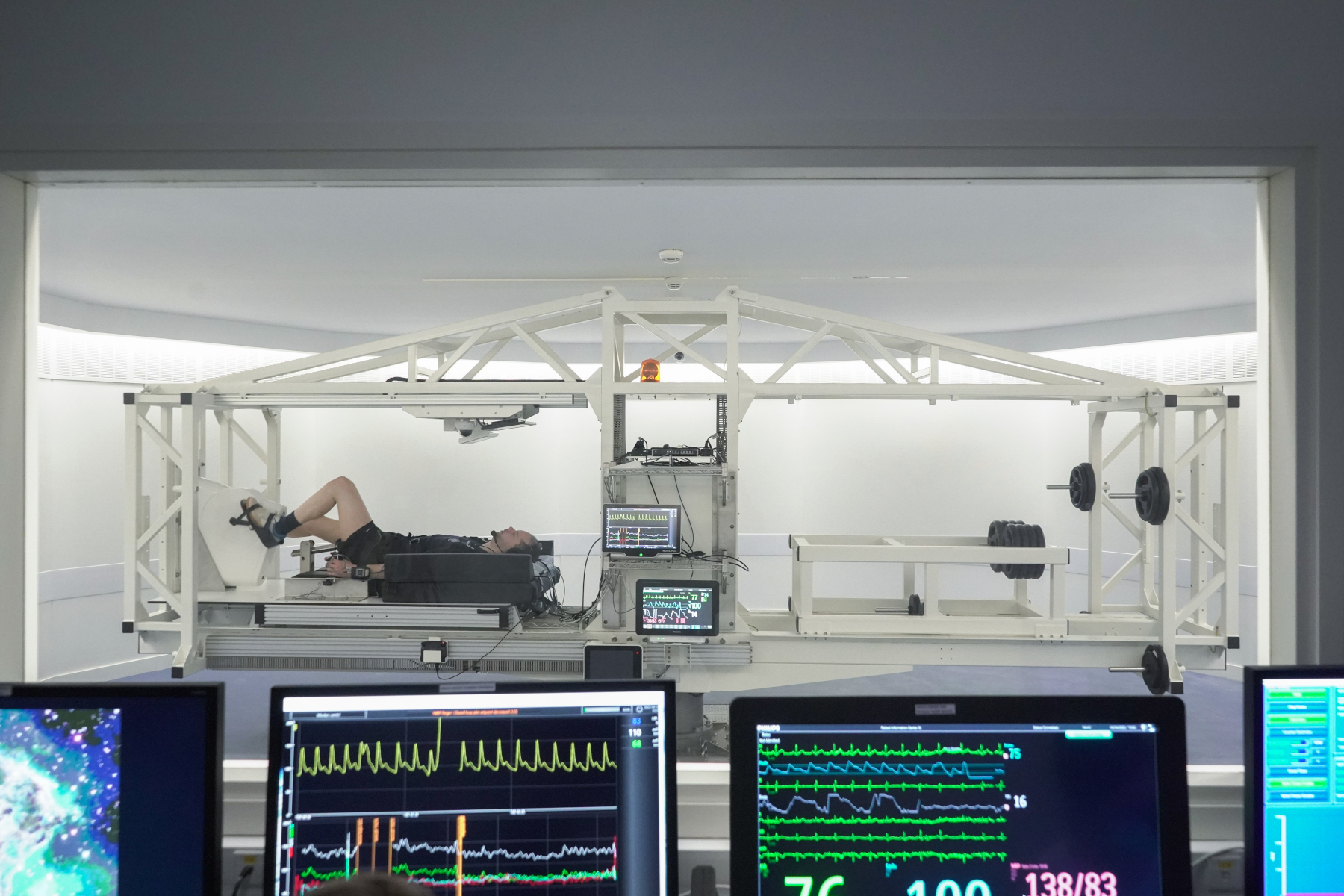
The study began on April 4 and will end in early July with 12 volunteers. An equivalent 2nd phase will be carried out in early 2024, also with 12 volunteers. Recruitment will take place in autumn 2023.
Applications will open in autumn 2023.
More information:

News
Our projects
A question ?
Become a volunteer ?
Our clinical studies
New volunteer recruitment for BRACE study
